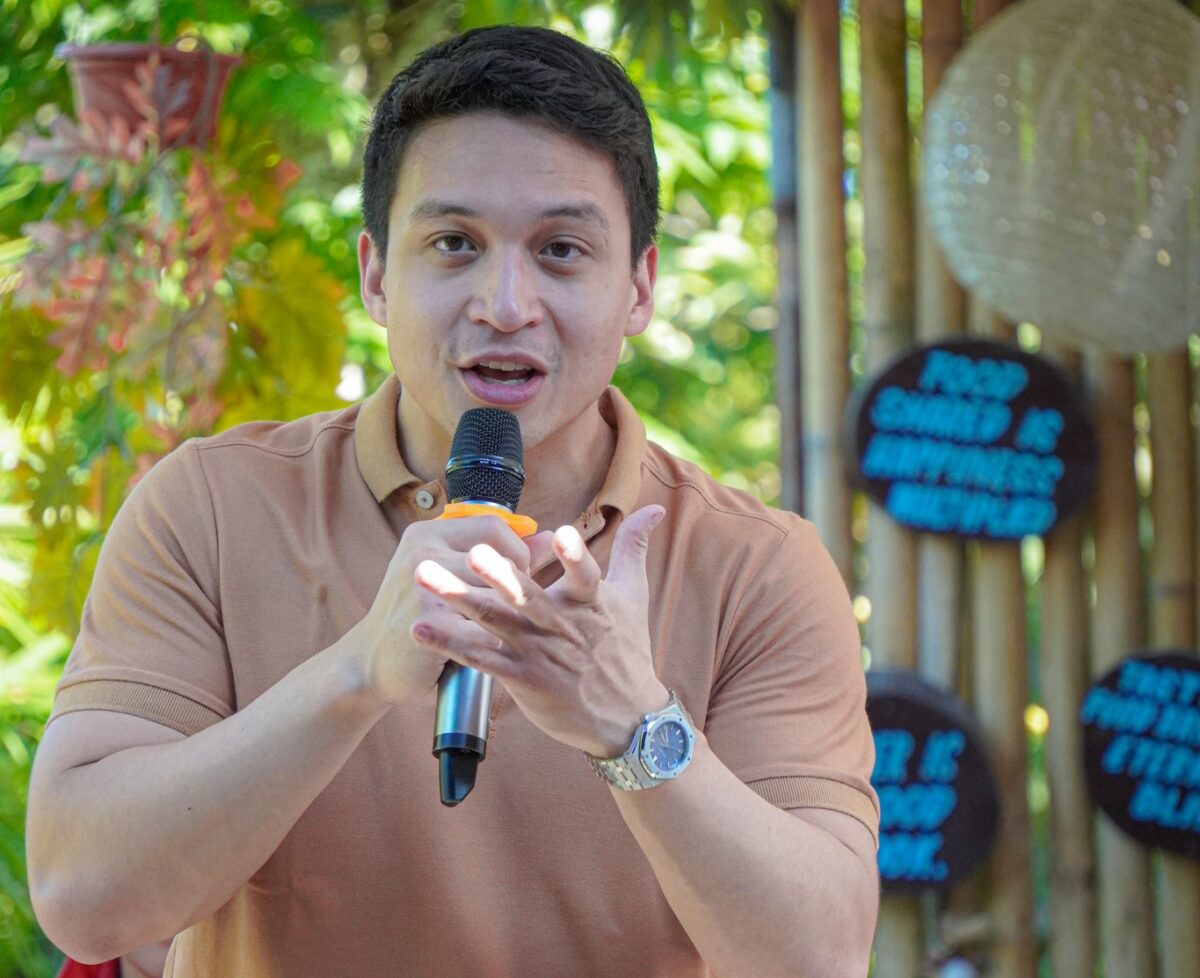Solons lukewarm on calls to regulate social media: A tough balancing act

Davao Oriental Rep. Cheeno Miguel Almario —Facebook page
MANILA, Philippines — Several solons appeared lukewarm to calls for a regulated social media use in the wake of misinformation, disinformation and even deepfakes, saying that toeing the line between freedom of expression and regulation will be a tough balancing act.
During a press briefing on Wednesday, lawmakers were asked about the request of the Kapisanan ng Social Media Broadcasters ng Pilipinas, Inc. (KSMBPI) for a law that would create a national social media regulatory board, to combat the spread of false information online.
READ: Congress asked to form a body to regulate social media content
According to Davao Oriental Rep. Cheeno Miguel Almario, the issue being brought up is not new considering that several foreign governments have also tried to restrict social media use, but the question of how much should a state regulate free speech always surfaces.
“It also begs the question, how far are you willing to regulate freedom of information and freedom of speech and it’s something we need to look into. However, we do not discount, nobody discounts also the prevalence of fake news, especially the deepfakes spreading, that was also a national issue,” Almario told reporters at the Batasang Pambansa complex.
READ: Palace debunks viral deepfake video of President
A way to verify authenticity
“So maybe we can look into at least how we can verify the authenticity, and as well as who gives the information out first, so by that we can also look into for example the past bill which is the SIM Card Registration Act and thru that, although the implementation is still underway, we see at least who are behind texts if you need to identify the sender,” he added.
Tingog party-list Rep. Jude Acidre agreed with Almario, saying that deciding on the matter will be a delicate balancing act.
Both lawmakers also believe that safeguards and other measures must be implemented first before regulations are even considered.
READ: Raps filed vs social media pages for libelous content, Marcos deepfake
“I think it is a very delicate balancing act of ensuring regulation and the freedom of expression and the freedom to information […] I think rather than direct regulation, (we should ensure) that the safeguards are available and are properly installed. Like for example, for age, who can access social media?” Acidre said.
“Second, what Congressman Cheeno (Almario) said that there should be a way for verification, because in most cases cybercrime, cyberlibel or any of these, they thrive because of anonymity, because we do not know them. That’s an important point to consider,” he added.
Criminal complaints
On Wednesday, the KSMBPI filed criminal complaints before the Philippine National Police-Anti-Cybercrime Group (PNP-ACG), against specific social media individuals for uploading or publishing “illegal, immoral and libelous content” on their accounts.
READ: PH combats fake news on West Philippine Sea spread by ‘trolls’
This includes a deep fake video where a voice that was trying to mimic President Ferdinand Marcos Jr. claimed that the Philippines under Marcos is now on a war footing against China.
The video then shows different clips supposedly taken from the West Philippine Sea (WPS), overlayed by Marcos’ fake voice which talks about fighting the Chinese if they do not give up claims to the disputed region.
The Presidential Communications Office has already disowned the video, saying that the video was made to sound like the President—stressing that Marcos has not made such an order to the Armed Forces of the Philippines.
KSMBPI chair Michael Raymond Aragon did not name the personalities and their social media pages and sites. However, he appealed to the House of Representatives and the Senate to craft a law that would regulate social media use.
Consider the regulation
On the other side of the coin, Lanao del Norte Rep. Mohamad Khalid Dimaporo called on his colleagues to consider the regulation of social media content—especially since it may cause harm to people, just like how it was experienced in his home province.
“I just want to say that that’s a topic that I hope will be treated urgently and seriously in this Congress, at least have the discussion about it. On my part I would like to see how Congress would delineate the line between free speech and public safety,” Dimaporo said.
“I’ll give you an example, free speech or disinformation or fake news can be bad for the general public if its causes fear, which we experienced that in Lanao del Norte. There was the bombing in the MSU Marawi Gymnasium then the fake news is going around, saying that the ISIS are in my province which is not true,” he added.